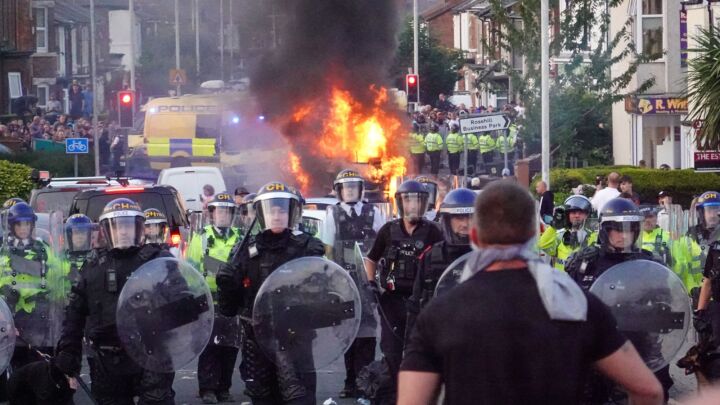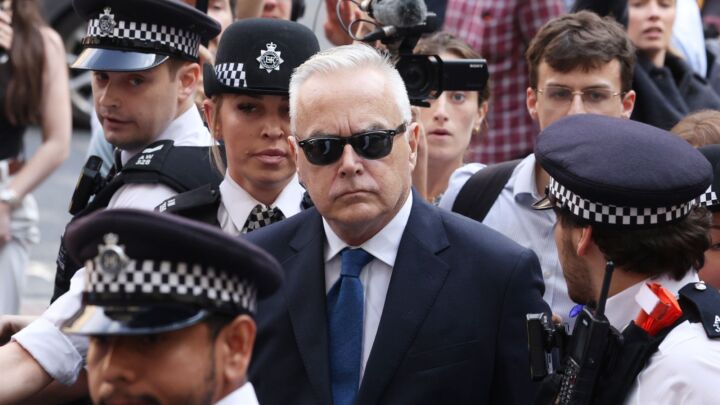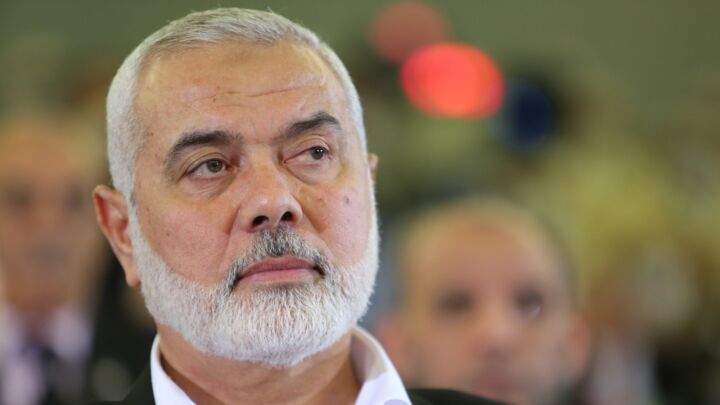Are London cops acting as Macron’s bully boys?
Why was a critic of the French government treated like a terrorist by the UK authorities?

Want to read spiked ad-free? Become a spiked supporter.
Last April, Ernest Moret was crossing the English Channel on his way to the London Book Fair. Soon after reaching St Pancras Station, the 28-year-old French publisher was stopped, interrogated and arrested by the Metropolitan Police. Using Britain’s wide-reaching Schedule 7 counter-terrorism powers, officers seized his devices and demanded that he hand over his passwords. When he refused to surrender them as a ‘point of principle’, he was detained.
The Met’s treatment of Moret was widely condemned at the time. He was soon released on bail, and the police later announced that the case had been dropped. Last month, it was also revealed that Moret received a five-figure sum from the Met, after it settled a civil claim for misfeasance and false imprisonment.
The details of the case remain troubling. Moret had not committed any crimes in the UK, nor was there any suggestion that he had journeyed to Britain for nefarious or violent purposes. In fact, the Met’s decision to arrest him appears to have nothing to do with the UK at all. Strikingly, officers justified Moret’s arrest on the grounds he had participated in the anti-government protests sweeping through France at the time. Supposedly, this meant that his presence in the UK could be a threat to public safety.
There’s a good chance you remember those protests from March last year. Hundreds of thousands of French citizens took to the streets of Paris, Marseille and beyond to protest against Emmanuel Macron’s intensely controversial pensions reforms. The protests intensified after Macron used Article 49.3 of the French constitution to force the law through the National Assembly without parliamentarians getting to vote. His actions were widely regarded as anti-democratic and authoritarian.
Moret was one of the many French citizens who opposed Macron’s conduct and the heavy-handed police action used against the protesters. It is now clear that Moret’s dissenting views were the primary cause of his detention here in the UK. His employer, La Fabrique Éditions, in conjunction with its British sister company, Verso Books, revealed that he had been interrogated about his critical views of Macron’s reforms. He was also asked by the police to name other ‘anti-government’ authors in his publisher’s catalogue. It has even been reported that his interrogation and arrest might have been conducted at the behest of the French government, with the Met effectively acting as Macron’s enforcers.
Whoever ultimately gave the orders in this case, it is clear that the police have abused their powers. The Met were able to use terror-related laws to arrest a foreign citizen, even though he had not committed any crimes or posed any threat. Reportedly, counterterrorism officers even boasted that, now that Moret was in the UK rather than France, the authorities could not only seize his devices, but also download all their content without any legal issues.
In a joint statement after his arrest, La Fabrique and Verso rightly called the Met’s questioning of his ‘political and philosophical opinions’ a ‘scandalous’ attack on democracy. After all, he was detained because the Met believed – or at least pretended to believe – that his views were a potential threat to public safety.
Moret’s treatment by the Met is deeply alarming. It reveals that dissent is effectively being treated as a form of ‘terrorism’. Free speech is in serious danger.
Thomas Osborne is an editorial assistant at spiked.
Picture by: Getty.
To enquire about republishing spiked’s content, a right to reply or to request a correction, please contact the managing editor, Viv Regan.








Comments
Want to join the conversation?
Only spiked supporters and patrons, who donate regularly to us, can comment on our articles.